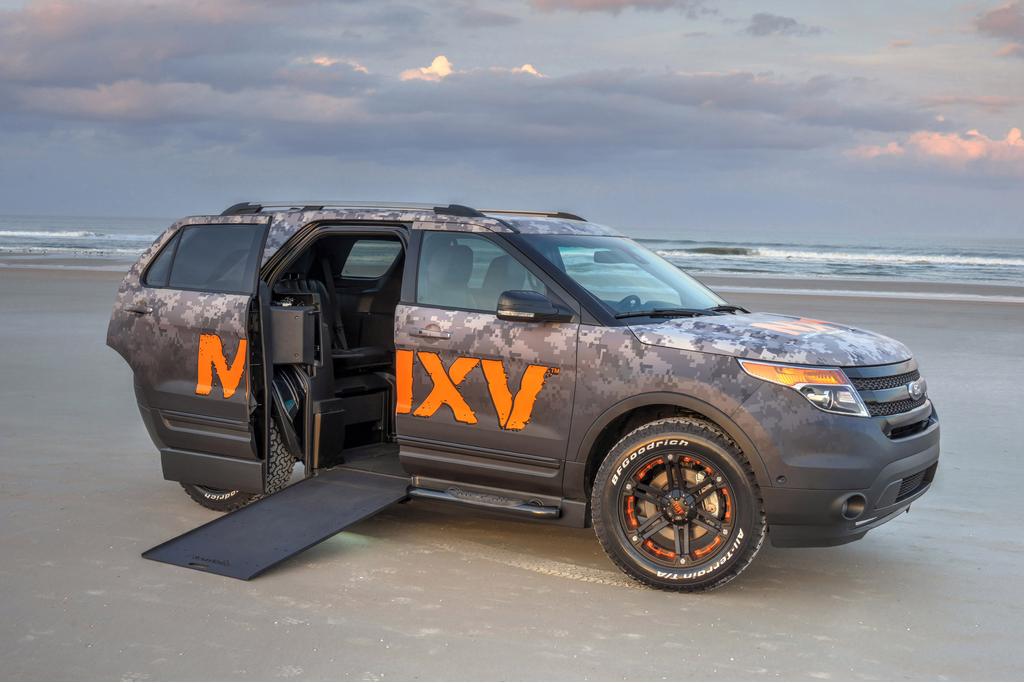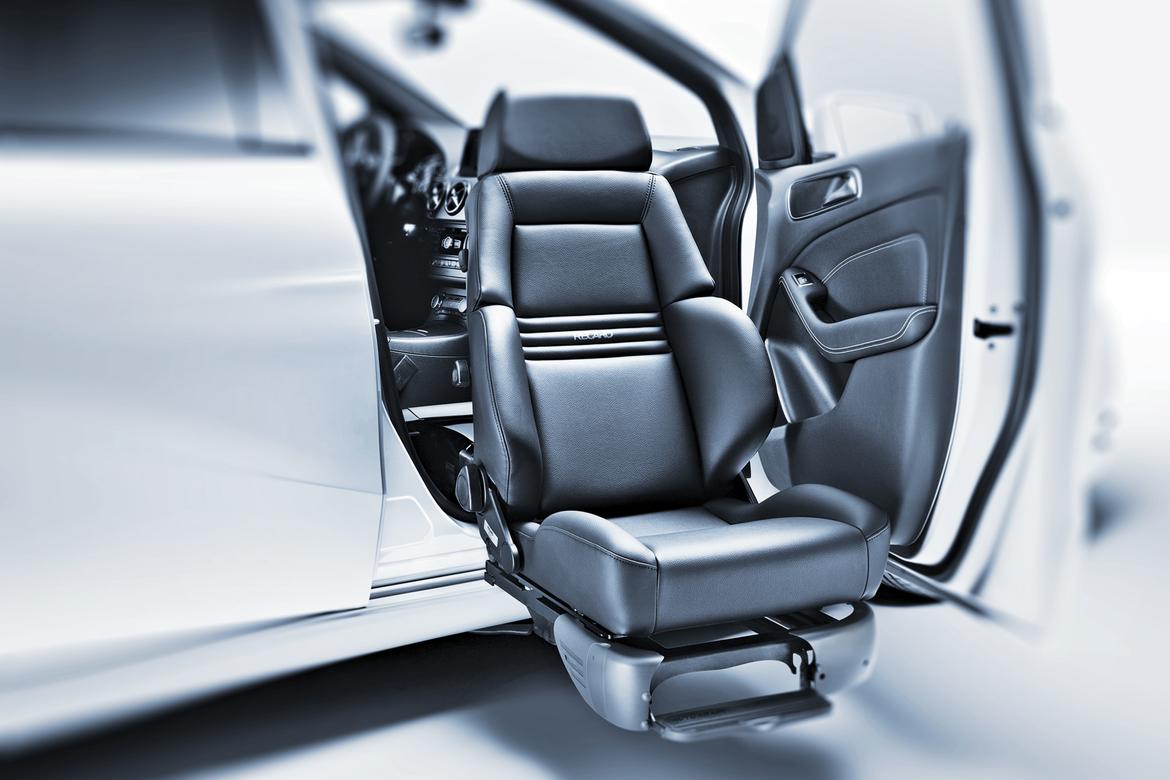
A quarter century ago this summer, the Americans with Disabilities Act ushered in a new era of equality - not just in the public sphere and the workplace but ultimately on the road, as well. The law's provisions for reasonable accommodations and proscription of discrimination have helped level the proverbial playing field for people with disabilities. It has also inspired a number of handy mobility features for cars.
Related: Program Helps Seniors Find Perfect Vehicle Fit
In conjunction with the silver anniversary of the ADA, Ford last month unveiled its first-ever mass-produced wheelchair-accessible SUV. The BraunAbility MXV is based on the Detroit automaker's Explorer, with special modifications by a top mobility-vehicle manufacturer, Indiana-based BraunAbility. The SUV, which allows people who use wheelchairs to drive or ride as a passenger, features special sliding-door technology, removable driver and passenger seats, and a 28-inch power in-floor ramp with lighting, along with a space-maximized interior.
"With Explorer's middle-row seat removed, the BraunAbility MXV provides interior space to fit the most common power wheelchair models, and its 56-inch cabin height provides a spacious interior for a comfortable ride," Ford said in a statement.
Other BraunAbility MXV features include a 54-inch door height, a space-saving sliding shifter and front-seat base design, an integrated key fob that operates both the door and ramp, and transfer-seat capability for moving from a wheelchair to the driver seat. Production is slated to begin this month, with early fall availability at 200 BraunAbility dealerships across the nation. Ford told Cars.com that the conversion costs nearly $30,000, which puts the MXV's starting price at just less than $60,000, on par with similarly designed BraunAbility minivans.

Turny Evo swivel seat; Manufacturer image
Another new offering is the improved Turny Evo swivel seat by European manufacturer Autoadapt. The concept of a swivel seat is not exactly new; they've been around for decades and help people more comfortably climb in and out of cars. The Turny Evo, however, is specifically designed for people who use wheelchairs, allowing improved accessibility and the safety of being properly belted into the vehicle seat as the automaker intended. This new version improves comfort, and ease of use and installation, the manufacturer said.
"When you travel in a vehicle seated in a wheelchair, you have already accepted a lower degree of safety," said Peter Wahlsten, Autoadapt executive vice president, in a statement. "Without proper head and neck support it is practically as bad as not wearing a seat belt at all."
The customizable Turny Evo is a device mounted underneath the seat enabling the seat to be rotated toward the door to assist entry and exit from both standing and wheelchair-seated positions. Swivel seats equipped with a seat lift allow the entire seat to extend outside the vehicle and lower to a convenient height for the user. U.S. dealerships for Autoadapt products are located in Wisconsin and Southern California.
The National Highway Traffic Safety Administration, which regulates vehicle modifications for people with disabilities, said the related cost of adaptive equipment can range from as little as $50 for a special seatback cushion to $1,000 for more complex mechanisms like hand controls, and from $20,000 to $80,000 for a modified vehicle. NHTSA notes that programs available through individual states' Department of Vocational Rehabilitation and the U.S. Department of Veterans Affairs may help cover part or all of such costs. In addition, several nonprofits, auto insurance carriers, automakers and the National Mobility Equipment Dealers Association can either provide financial assistance or help people procure it.
NHTSA recommends that people seeking adaptive driving equipment start by evaluating their needs to make sure the vehicle or device properly fits; then they should ensure the equipment is properly installed and maintained. NMEDA's website lists many of the varied pieces of equipment available and provides resources to help people find the right solution for them.
"Whatever your requirements, chances are good that adaptive equipment is available to support your special driving needs and allow you to maintain the freedom offered by the open road," NHTSA stated.
No comments:
Post a Comment